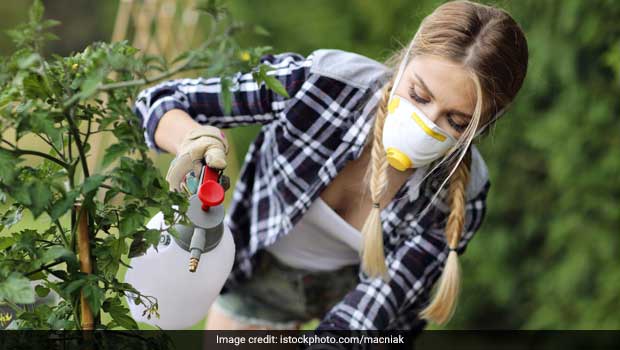
[ad_1]
In the post-Covid era, ensuring food safety is of the ultimate importance. It is essential to clean vegetables and fruits properly before consumption, and this has been highlighted many times in the past two years. Recently, World Food Safety Day was celebrated on June 7 by the World Health Organization (WHO) to emphasise the importance of eating healthy, safe and chemical-free food and, thus, help prevent food-borne diseases too. And now, technological innovation is aimed at solving food safety concerns, especially for fresh produce. Researchers at Sweden’s Karolinska Institute have invented a small sensor that may be useful in detecting pesticides on fruits.
The researchers have published their findings in the academic journal ‘Advanced Science’. The nano-sensors are still at an early stage but may help detect food pesticides before consumption. The idea of the invention is to enable local stores and supermarkets to detect the harmful chemicals on the produce they are selling before it causes harmful effects on human health. These nano-sensors use a 1970’s discovery called Surface-Enhanced Raman Scattering (SERS) which has been used in several fields other than food. They use a flame-spraying technique to deposit nanoparticles on a glass surface, thus helping boost chemical signals and identify the presence of pesticides in a matter of minutes.
(Also Read: Students Invent ‘Edible Tape’ To Keep Wrap Fillings Intact)

Pesticide can be extremely harmful for human health.
“Reports show that up to half of all fruits sold in the EU contain pesticide residues that in larger quantities have been linked to human health problems,” says Georgios Sotiriou, principal researcher at the Department of Microbiology, Tumor and Cell Biology, Karolinska Institutet, and the study’s corresponding author.
“Our sensors can detect pesticide residues on apple surfaces in a short time of five minutes without destroying the fruit,” said a postdoctoral researcher in Sotiriou’s lab and the study’s first author, Haipeng Li. “While they need to be validated in larger studies, we offer a proof-of-concept practical application for food safety testing at scale before consumption,” he added.
[ad_2]
Source link